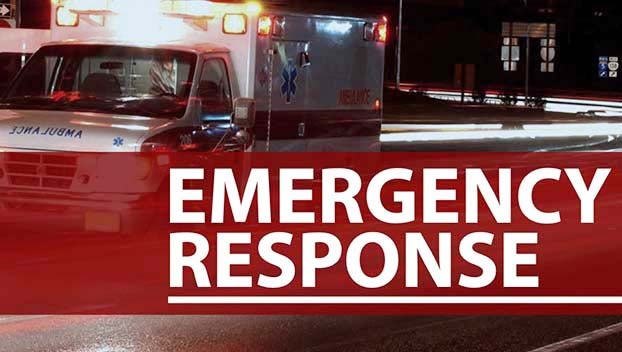‘Giant domino effect:’ Dolly Parton Imagination Library preps KY kids for Kindergarten
Published 4:45 pm Tuesday, August 27, 2024
|
Getting your Trinity Audio player ready...
|
By Sarah Michels
Bluegrass Live
Dolly Parton wants Kentucky kids to be ready for Kindergarten.
As of June, every preschooler in the Commonwealth is eligible to receive free, monthly, age-appropriate books from her Imagination Library from the ages of zero to five.
“The child will have 90% of their brain formed by the time they’re five,” said Dolly Parton Imagination Library Kentucky State Director JC Morgan. “And what Dolly wants is for the kids to have reading ingrained; unlike other skills that humans have, reading is one that you really have to learn.”
How does the Dolly Parton Imagination Library work?
In 1995, famed country singer Dolly Parton started a library program in her Tennessee home county.
Parents and caregivers of preschool age kids could sign up to receive free, monthly books in the mail to read to their children. Early childhood experts curate the books—”they are age appropriate right down to the birth month of the child,” Morgan said.
For example, the youngest kids start with board books, heavy on pictures with one or two words, that help them understand the concept of books and reading.
As they grow older, books focused on big, bright colors and nursery rhymes may turn into books on daily routines and real-life issues like fear, conflict, love and safety.
Later, kids may receive poetry, science nonfiction or more complex stories featuring heroes, complications and resolutions.
“The idea is that by the time the child gets to kindergarten, they know their colors, their letters or numbers or shapes—all of those fundamental skills that make them a better kindergartner,” Morgan said.
Parton’s Imagination Library quickly grew, and by 2002, Kentucky had its first program in Henderson County. By mid-2021, the Commonwealth had 88 programs.
In 2021, the state legislature decided to spend one-time money to cover half the cost of all DPIL programs. Each book costs $2.20 to print and mail, which local partners like public libraries, public schools and nonprofits were responsible for covering.
Now, they only have to find funding for half that cost. In 2022, the legislature took another step to make its 50% match permanent. The State Treasury maintains a trust fund dedicated to the program, with the hopes that Dolly Parton’s Imagination Library encourages young children to develop a love for reading and learning.
Since the legislature’s move, the program has grown “exponentially” in Kentucky, with 126 total programs serving 43% of Kentucky’s eligible kids, Morgan said.
“We added a whole bunch more local programs—local programs that had been limiting their enrollment because they just couldn’t afford to pay for every kid in their county,” he said.
What’s the impact of the Dolly Parton Imagination Library?
Parents don’t always know the best ways to read with their child, said Hannah Gray, United Way of Southern Kentucky director of community impact. United Way of Southern Kentucky is the local program partner in nine south central Kentucky counties, including Warren County.
But often, DPIL books include suggestions for how to make the reading process an interactive teaching moment.
“It’ll say something like, ‘Every time Peter says hello to his mom, you say hello to your child,’ ” Gray said. ” It just gives them ideas for interacting. We talk a lot about the parent as being the first teacher, and a lot of parents don’t think about themselves in that way.”
Dave Schroeder is the executive director of the most recent addition to Kentucky’s DPIL program, the Kenton County Public Library. Before June, only part of the county had been covered, but library staff pulled together five local school districts to make it happen.
“Our major goal was to make sure every child who wanted to participate had the opportunity no matter what school district they lived in,” Schroeder said.
In the first four days, the program got over 1,500 kids signed up. The Facebook post announcing the addition has hundreds of comments with people tagging friends and family lauding the program and encouraging them to also sign their children up.
Schroeder said the program could be a good way to get kids caught back up on learning after the pandemic.
Research backs these anecdotes up.
According to a United Kingdom study, kids who participated in DPIL had better social skills, better vocabulary and were more receptive to learning than their non-participating peers. The gap between disadvantaged children and their peers narrowed in schools where most students were participants.
An Arkansas study found that participants scored better on tests measuring elementary academic success, even controlling for variables like income, race and ethnicity.
Finally, in a Washington survey, 75% of parents said their child’s excitement and interest in books and reading increased after participating in the program.
Early literacy is “invaluable” to future success, Gray said.
“If a child is not ready for kindergarten, they are a lot less likely to be reading proficiently by third grade,” she said.
“If they’re not reading proficiently by third grade, they’re less likely to graduate, and if they don’t graduate, they are way more likely to become incarcerated. So it’s like this giant domino effect, and we know that it starts with those ages—zero to five.”
Interested parents and caregivers can sign up for the program online at www.imaginationlibrary.com/usa/find-my-program. The program is free, but individuals wanting to sponsor a child can donate $17.50 for a year.





